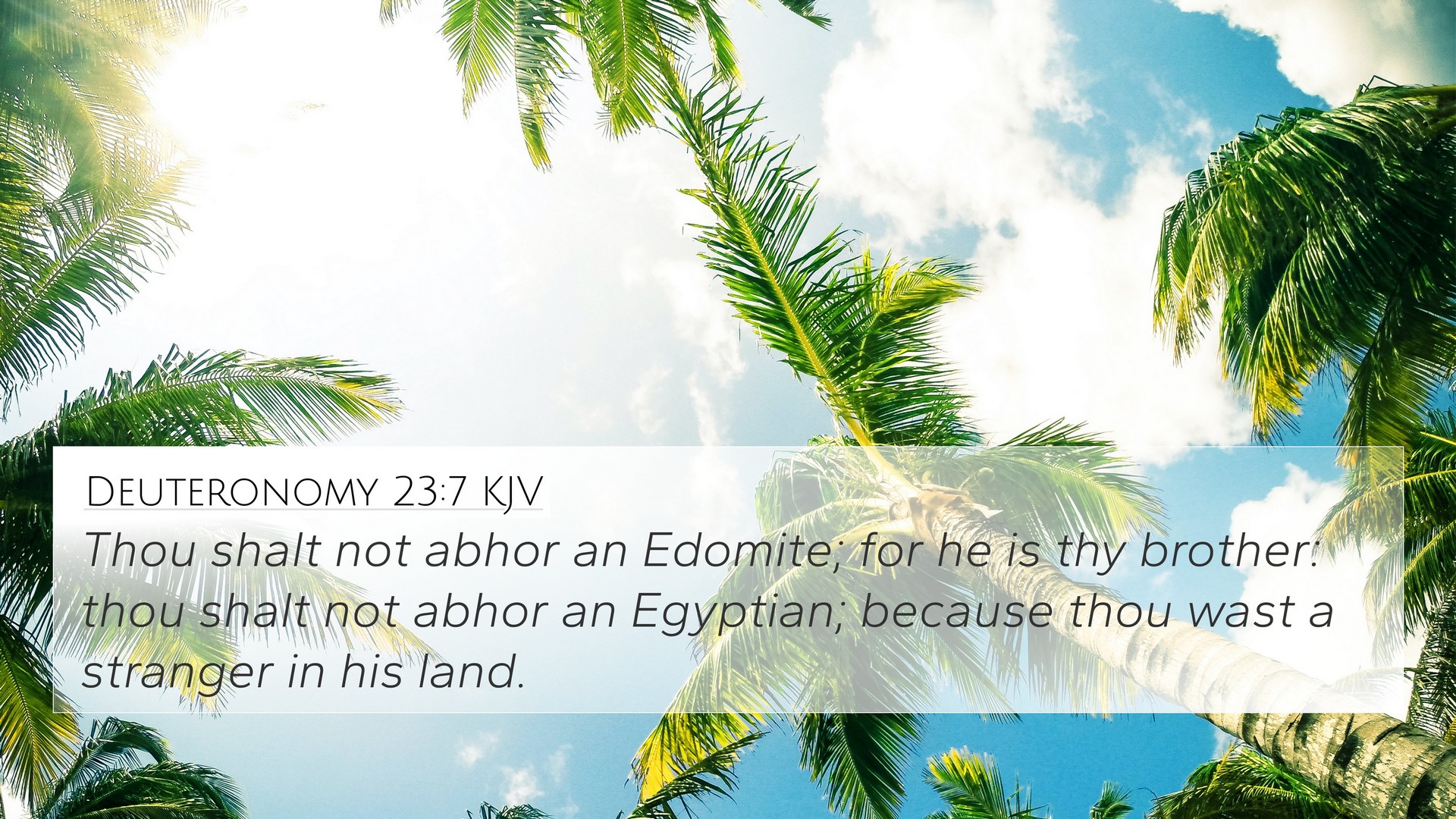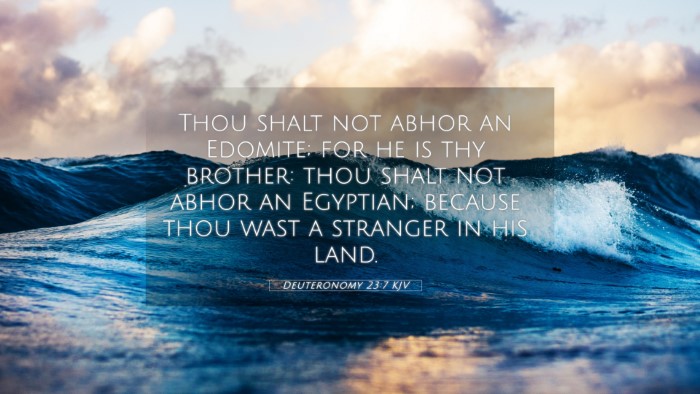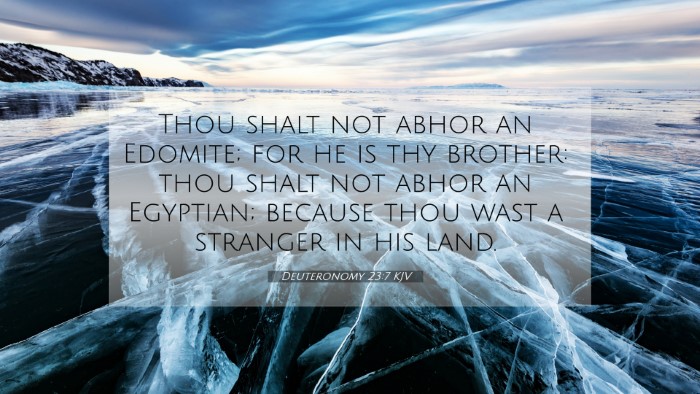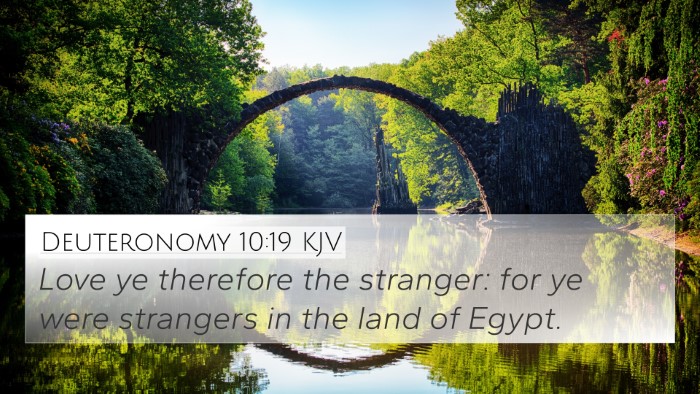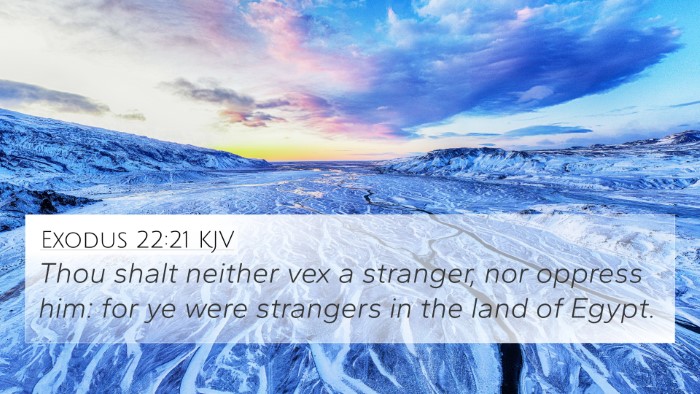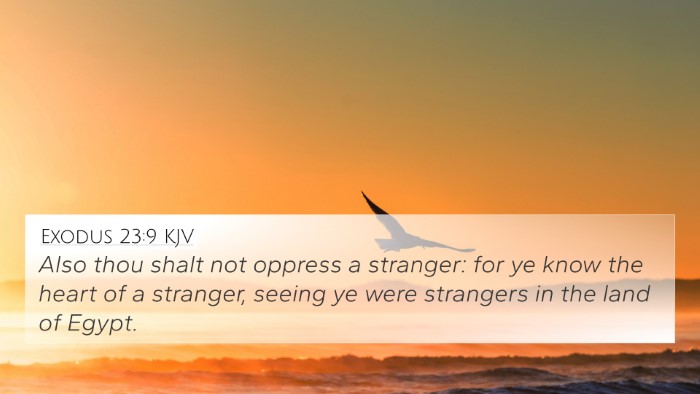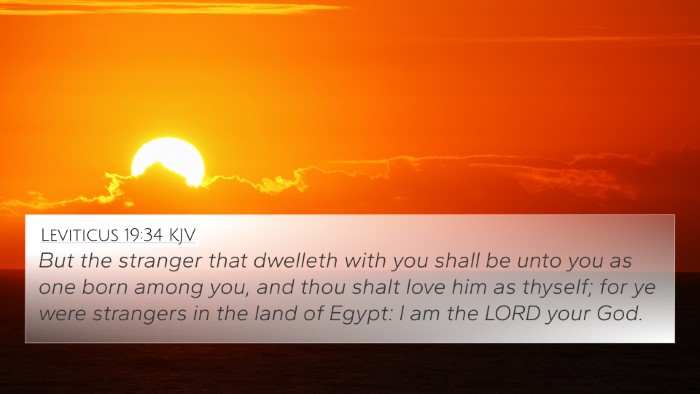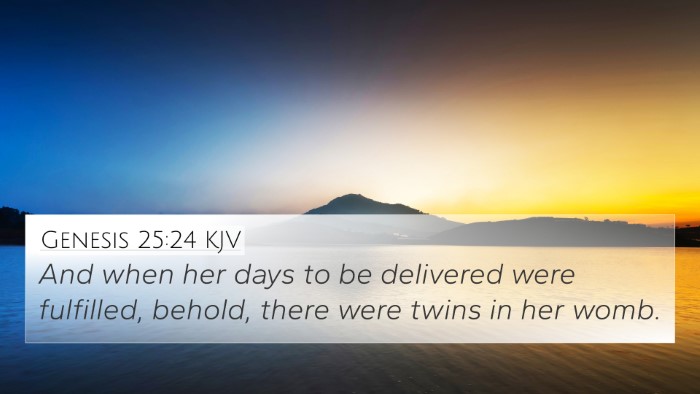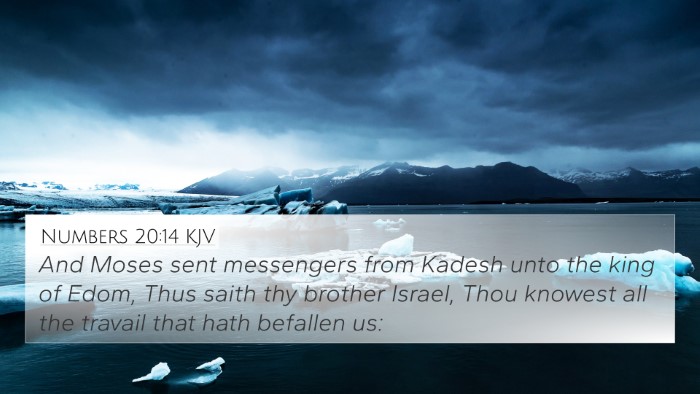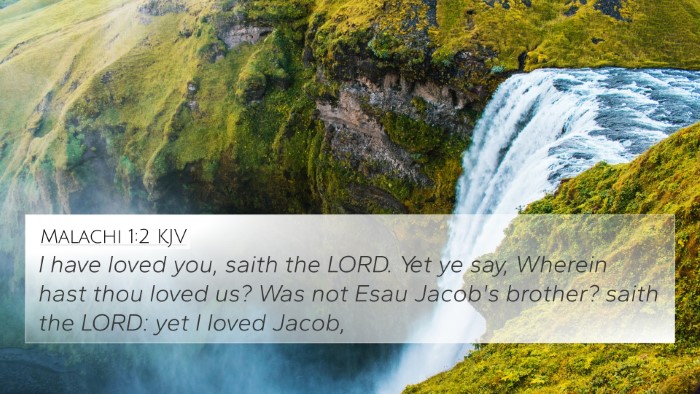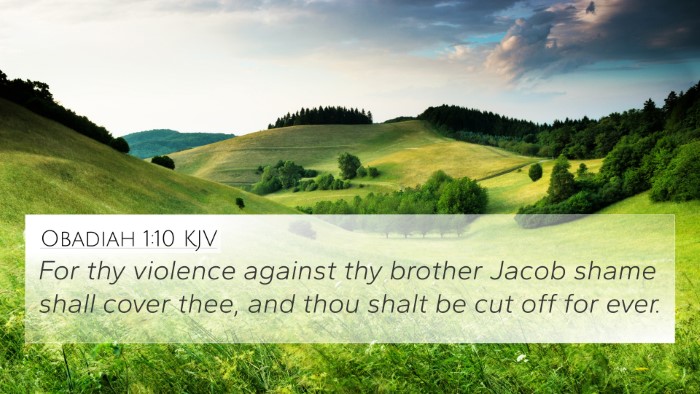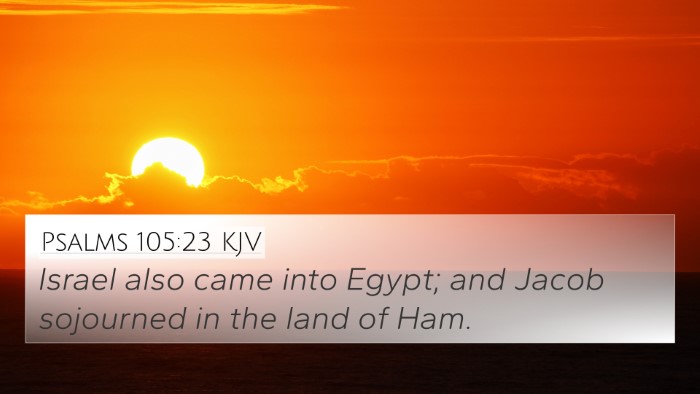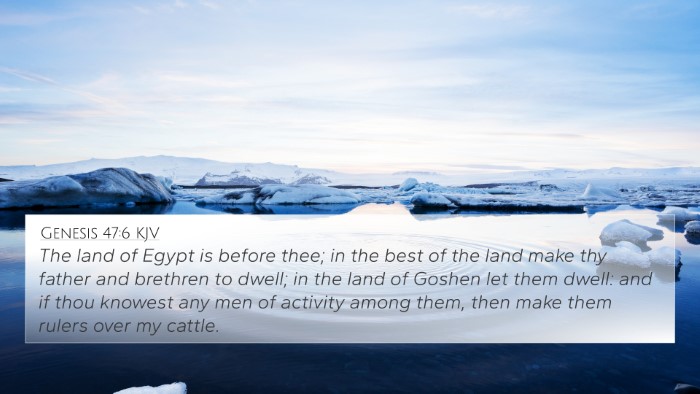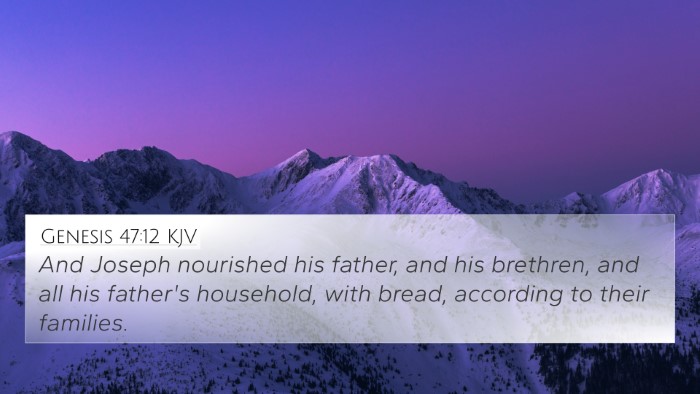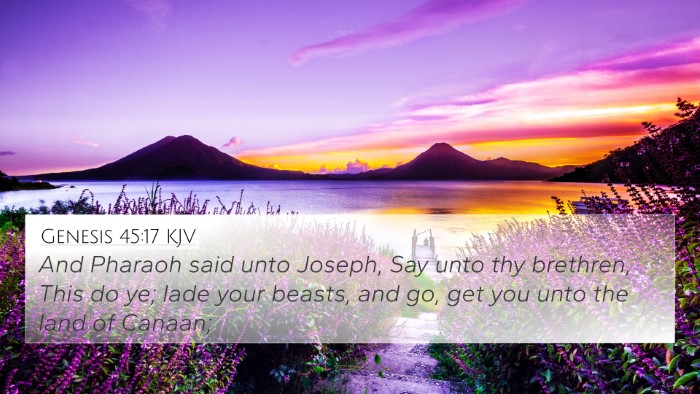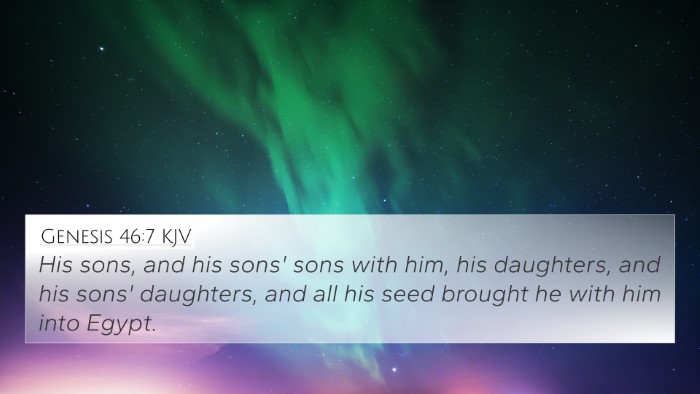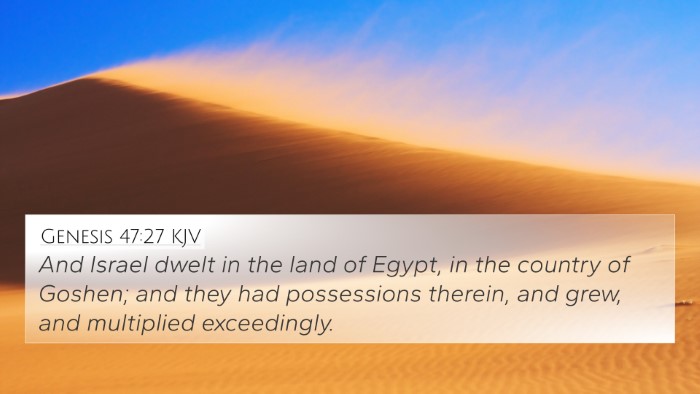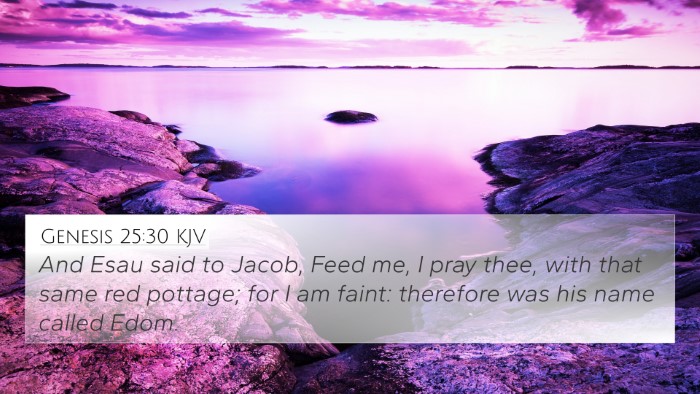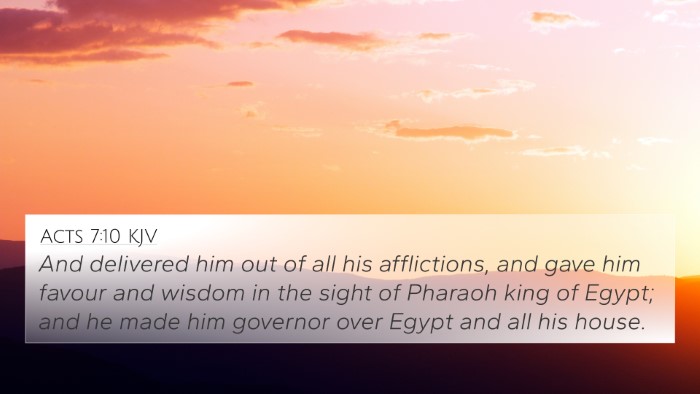Understanding Deuteronomy 23:7
Deuteronomy 23:7 states, "You shall not abhor an Edomite, for he is your brother; you shall not abhor an Egyptian, because you were a sojourner in his land. The children of the third generation born to them may enter the assembly of the Lord." This verse highlights God's command regarding the treatment of certain groups of people, especially those who were historically in opposition to Israel.
Summary of the Verse's Meaning
This verse speaks to the larger principle of compassion and inclusivity within the community of Israel. By instructing the Israelites not to despise the Edomites and Egyptians, God emphasizes the importance of recognizing shared history and kinship, even in the face of past conflicts or grievances.
Key Insights from Commentaries
-
Matthew Henry: Henry highlights that the Edomites, descendants of Esau, and Egyptians, who had once oppressing the Israelites, are now seen in a different light. He explains that the Israelites, despite historical tensions, should treat them with dignity because of their shared ancestry and past interactions.
-
Albert Barnes: Barnes notes that this directive serves to prevent prejudice and foster harmony among nations that interact with Israel. He emphasizes the idea of recognizing the humanity and shared experiences of others, which aligns with God's covenantal relationship with His people.
-
Adam Clarke: Clarke focuses on the reason for this command, suggesting that the Israelites, having once been strangers in Egypt, should empathize and show kindness rather than harbor grudges. This perspective encourages an understanding of the dynamics of historical grievances and the need for reconciliation.
Cross-References for Deuteronomy 23:7
To deepen the understanding of Deuteronomy 23:7, here are some significant cross-references:
- Genesis 25:30: Discusses the relationship between Jacob (Israel) and Esau (Edom).
- Exodus 22:21: Command to not oppress foreigners, aligning with the theme of kindness to others.
- Leviticus 19:34: "The stranger who sojourns with you shall be to you as the native among you." This emphasizes the treatment of foreigners.
- 2 Samuel 8:14: Mention of the Edomites as subjects, reinforcing the historical context.
- Isaiah 34:5-6: Prophetic judgments against Edom, showcasing the historical conflict.
- Romans 9:13: Reflects on God's love for Jacob and hate for Esau, providing insight into the legacy of these relationships.
- Matthew 5:44: Jesus's teaching on loving enemies, connecting New Testament principles of love and forgiveness.
Thematic Connections and Implications
Thematically, Deuteronomy 23:7 invites readers to engage in a broader dialogue about compassionate inclusion and the importance of historical understanding. This verse teaches that past grievances should not dictate present relationships and that God's people are called to transcend historical enmities. Every reference serves as a reminder that all humanity shares a common history and destiny in God’s overarching plan.
How This Reflects in the New Testament
In the New Testament, the themes found in Deuteronomy 23:7 resonate with the teachings of Jesus on love and acceptance. The call to love one's neighbor and treat others compassionately can trace its roots back to these earlier scriptures, showcasing inter-Biblical dialogue that enriches the understanding of God's commandments across both Testaments.
Conclusion
Overall, Deuteronomy 23:7 serves as a profound reminder of the importance of forgiveness, understanding, and the bonds that unite humanity regardless of historical grievances. It calls upon believers to foster relationships of dignity and respect, reflecting God's inclusive love.
